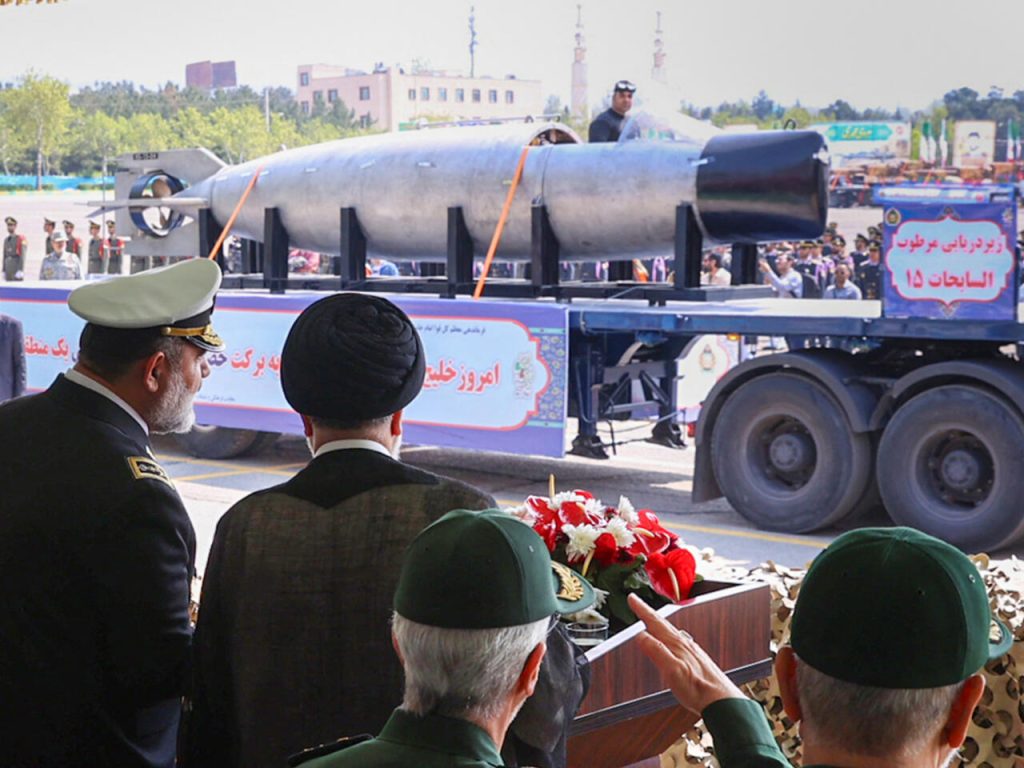Iran has warned that it may pursue nuclear weapons if it faces military aggression from the United States or its allies, a senior adviser to Supreme Leader Ayatollah Ali Khamenei stated on Monday. This declaration follows a threat from former US President Donald Trump, who suggested military action if Tehran refuses to curb its nuclear activities.
Ali Larijani, a close aide to Khamenei, asserted in a televised interview that Iran is not currently seeking nuclear weapons. However, he warned that any hostile actions regarding Iran’s nuclear programme could push the country to reconsider its stance as a means of self-defence.
“We are not moving towards (nuclear) weapons, but if you do something wrong in the Iranian nuclear issue, you will force Iran to move towards that because it has to defend itself,” Khamenei’s adviser Ali Larijani told state TV.
“Iran does not want to do this, but … (it) will have no choice,” he added.

“If at some point you (the US) move towards bombing by yourself or through Israel, you will force Iran to make a different decision.”
Trump reportedly said over the weekend that “there will be bombing” unless Iran agrees to a nuclear deal, as per NBC News. The president also hinted at imposing “secondary tariffs” to exert further pressure on Tehran. It remains unclear whether his comments implied direct US military action or a coordinated offensive with an ally such as Israel.
Khamenei, in a speech marking the end of Ramadan, dismissed these threats, stating that any attack would be met with a forceful response. Iran’s UN ambassador, Amir Saeid Iravani, formally condemned Trump’s remarks in a letter to the UN Security Council, vowing a swift and decisive retaliation against any aggression by the US or its “proxy,” referring to Israel.
In response to Trump’s statements, Iran’s foreign ministry summoned the Swiss charge d’affaires, who represents US interests in Tehran, to express its condemnation.
Senior Iranian military commander General Amirali Hajizadeh also issued a stark warning, highlighting the presence of American bases and 50,000 US troops in the region. “Someone in a glass house should not throw stones,” he cautioned during a state TV appearance.
Since assuming office in January, Trump has revived his “maximum pressure” strategy, reinstating sanctions and withdrawing the US from the 2015 nuclear agreement, which had eased restrictions on Iran’s nuclear programme in exchange for compliance with limitations on uranium enrichment.
Diplomatic efforts between the two nations remain strained. On March 7, Trump reportedly sent a letter to Khamenei through an intermediary from the United Arab Emirates, urging negotiations and warning of military repercussions should Iran refuse. Iran responded via Oman but declined direct talks, with Foreign Minister Abbas Araghchi stating that Tehran would not negotiate under pressure or threats of force. However, he hinted at the possibility of indirect discussions.
While US and Iranian officials have reportedly engaged in backchannel talks, Khamenei maintains the final authority over major state decisions. Iranian President Masoud Pezeshkian confirmed that the supreme leader had sanctioned indirect negotiations.
Oman, which has previously mediated between Washington and Tehran in the absence of formal diplomatic ties since the 1979 Islamic Revolution, relayed Iran’s response to the United States.
Beyond the nuclear dispute, Western governments accuse Iran of leveraging proxy groups to extend its influence across the Middle East, a charge Iran denies. Khamenei, instead, labelled Israel as the region’s sole “proxy force,” reiterating his call for the elimination of the Zionist state.


